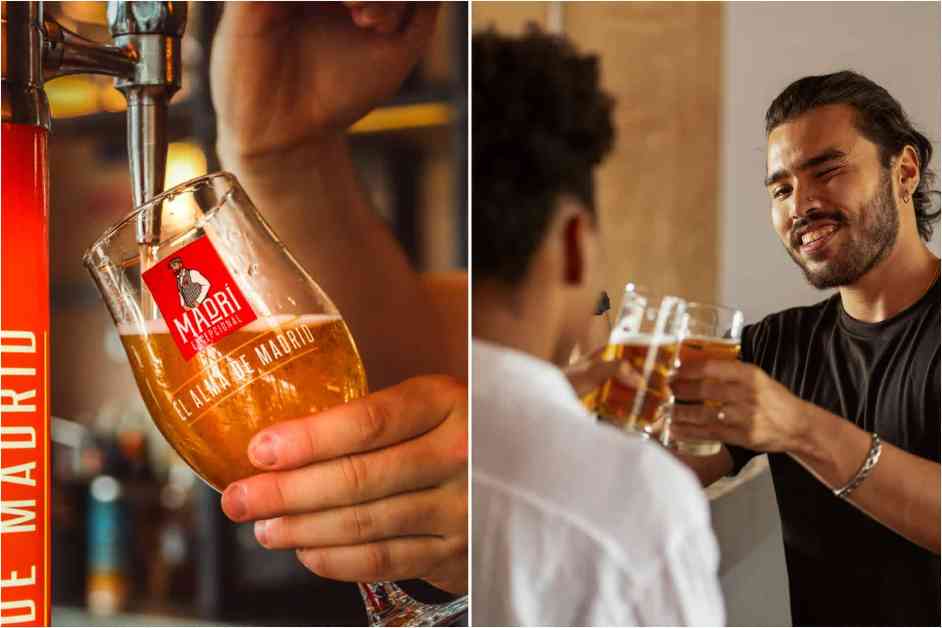The Deception of Madri: Unraveling the Truth Behind This Spanish Beverage
In recent years, the UK has witnessed a surge in the popularity of Spanish lagers, with Madri emerging as a frontrunner in this trend. Marketed as the “Soul of Madrid,” Madri quickly became a household name in British pubs, enticing consumers with its promise of a taste of Spain. However, recent revelations have exposed the true origins of this seemingly Spanish beverage, shedding light on a clever marketing strategy that has captivated the masses.
The Rise of Madri: A Marketing Triumph
Madri, touted as the most successful beer launch in history, made its debut in UK pubs during the post-pandemic years of 2021/22. Karen Albert, the brand director for Premium Beers at Molson Coors, proudly announced that Madri had delivered the highest-value sales of any alcohol brand in its first year, generating a staggering £109.3 million in revenue. The beer’s success was further fueled by a growing trend towards ‘Spanish’ lagers in the UK, which saw a 73% increase in market share over the past year, with one in five pints now being poured from Spanish beer taps.
While established brands like Estrella Damm and San Miguel had long held a presence in the UK market, Madri’s arrival marked a turning point in the industry. Pubs across the country embraced the new lager, offering patrons a taste of Spain amidst travel restrictions and uncertainties. However, what consumers didn’t realize was that they had fallen victim to a clever marketing ploy, as Madri was not brewed in the streets of Madrid, but rather in the heart of Yorkshire.
The Truth Behind Madri: A Manufactured Brand
Contrary to its claims of being the “Soul of Madrid,” Madri was revealed to be a completely manufactured and invented brand by Molson Coors, a Canadian beer company with a foothold in the UK market. Brewed in Tadcaster, Yorkshire, Madri’s origins paint a stark contrast to its Spanish-inspired branding. Despite its attempt to evoke the spirit of Madrid, the beer remains virtually unknown in the city it purports to represent, with local Spanish brands like Mahou and El Águila maintaining a stronghold in the market.
Renowned beer expert Pete Brown described Madri as a mere marketing reflex exercise, likening it to the success of Peroni’s marketing campaign. The red and white packaging adorned with a hipster in a Peaky Blinders-style cap may have captured consumers’ attention, but it was far from an authentic representation of Spanish culture. In reality, Madri was a collaboration between Molson Coors and La Sagra Brewery, a craft firm in Spain acquired by Coors in 2017, further blurring the lines of authenticity.
The Impact of Misconceptions: A Lesson Learned
The unveiling of Madri’s true origins serves as a cautionary tale for consumers and industry players alike. In a market saturated with branding and marketing tactics, it’s essential to question the authenticity behind the products we consume. While Madri may have dominated the UK beer scene for a period, its success was built on a foundation of deception rather than genuine Spanish heritage.
As the dust settles on the Madri controversy, it prompts a reflection on the power of marketing in shaping consumer perceptions. The allure of a foreign brand promising a taste of exotic lands may be tempting, but it’s essential to look beyond the packaging and labels to uncover the truth behind the products we consume. Madri’s journey from a Spanish sensation to a British-brewed beverage serves as a reminder that not everything is as it seems in the world of marketing and branding.





















